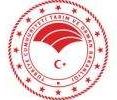Basic Policies Applied By The Meat & Fishinstitution
In line with the principles of profitability and productivity, by using its sources rationally and taking timely, effective and conscious decisions, Meat and Fish Institution follows the below-mentioned policies while carrying out its main activities such as purchasing, production and marketing:
- To promote the national livestock industry to contribute to its stable development.
- To prevent financial losses of the producers by setting sustainable livestock purchasing prices that take into account the cost of breeding.
- To produce hygienic, healthy, safe and high-quality meat and meat products .
- To contribute to the formation of the price stability in the market by forming balance between the breeder and consumer.
- To take a regulatory and supporting role in the sector by performing the production and marketing activities so as to contribute to the development of the livestock sector.
- To offer service to wide masses in line with the principles of profitability and productivity by meeting the competition requirements in the sector pursuant to the rules of the market economy.
- To contribute to the employment on national level through its operations in livestock and meat sectors.
MFI´s POLICY OF IMPROVING THE LIVESTOCK INDUSTRY
Beginning from the 1960s, MFI promoted stable breeding and enabled the transition to intensive fattening by training livestock farmers and raising awareness among them.
Meat and Fish Institution has promoted high quality breeding by forming livestock procurement criteria and through other relevant policies. With the efforts of MFI, livestock breeding became a commercial sector and Turkish meat industry developed.
MFI has developed and implemented contract breeding projects in order to improve and popularize breeding. The Institution thus enabled farmers to adopt livestock breeding as a full time commercial activity.
Along with the promotion of contract breeding, Meat and Fish Institution has introduced yield and premium practices in the livestock procurement, which promote the high quality breeding and enable increases in carcass averages.
MFA has stood by the farmers in times of disasters such as drought and earthquake by purchasing their livestock on site and providing support and assistance.
PRODUCTION AND SALE POLICY OF MFA
Meat and Fish Institution has been an entity which inspects the meat from the farm to the table and offers healthy and safe products to the public in line with its founding policies. The livestock admitted to the Meat and Fish Institution for butchering are examined by the veterinaries, and their shipping documents are controlled (thus the circulation of livestock is controlled pursuant to the legislation). The healthy livestock are transferred to slaughtering and slaughtered under the supervision of the veterinaries. Meats and offal are strictly examined and then labelled and transferred for production and sale.
ISO 22000 Food Safety System and ISO 9001:2008 Quality Management System are applied to perform high quality production for the consumption of the public.
In the production plants equipped with modern technologies, product diversification is performed in line with the consumption habits and preferences of the public; and the high quality and safe meat products such as mince, cubes, steak, chops etc., charcuterie / delicatessen products such as Sudjuk (Turkish Sausage), sausage, salami, fried meat, meatball, etc. and fish products such as fillet trout, salmon, mackerel and whiting, etc. are released to the market on both wholesale and retail basis at economic prices.
Some of the meat produced in the Meat and Fish Institution meat processing plants are released to the market in the form of carcass and some are released after chopping and removing the bones on both wholesale and retail basis.
MFI that has undertaken significant duties in nutrition of the consumers such as supporting and contributing to the development of the national livestock industry, increasing the productivity per unit, and producing healthy and safe meat and meat products, shall continue to successfully accomplish its duties in the future as well.
Title of the Meat and Fish Institution was changed as “Meat and Milk Board” upon the resolution which was issued on the 27.04.2013 dated and 4553 numbered issue of the Official Gazette.
Title of the Meat and Fish Institution General Directorate, which was a state owned enterprise founded pursuant to the clause 3 of the 233 numbered Statutory Decree and clause 4 of the 399 numbered Statutory Decree, was changed as Meat and Milk Board General Directorate in order to enable the state to play a regulatory and supporting role in the livestock industry in accordance with the livestock policies of the state, to contribute to the formation of the perfect competition conditions in the sector under market economy rules and to implement its activities for public benefit.
 English
English  Türkçe
Türkçe


